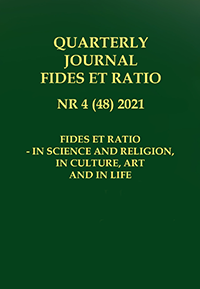Abstract
For adolescents, school life and learning is one of the most important domains of their lives. School achievement, depending on whether it is high or low, can motivate students to learn or make them reluctant to engage in school learning. Students' engagement in learning is closely related to their perceived school climate. The present study set out to investigate how these two variables distinguish between groups of students with high and low grade point averages. The participants in this study were students from secondary schools from among whom the students with the lowest and the highest grade point average were selected. It is found that students with higher grade point average are more engaged in learning and perceive their school climate as more positive than students with low grade point average.
References
Clifford, M., Menon, R. Gangi, T. Condon, C., Hornung, K. (2012). Measuring school climate for gauging principal performance: A review of the validity and reliability of publicly accessible measures. American Institutes for Research, Washington.
Daily, S.M., Mann, M.J., Kristjansson, A.L., Smith, M.L., & Zullig, K.J. (2019). School climate and academic achievement in middle and high school students. Journal of School Health, 89(3), 173-180.
Ferreira, M., Martinsone, B., & Talić, S. (2020). Promoting sustainable social emotional learning at school through relationship-centered learning environment, teaching methods and formative assessment. Journal of Teacher Education for Sustainability, 22(1), 21-36.
Fredricks, J.A., Filsecker, M., & Lawson, M. A. (2016). Student engagement, context, and adjustment: Addressing definitional, measurement, and methodological issues.
Gwiazdowska-Stańczak, S. (2021). Zaangażowanie w naukę i klimat w szkole. [School engagement and school climate] Warszawa: Difin.
Gwiazdowska-Stańczak, S., Sękowski, A.E. (2018). Rodzina uczniów zdolnych. [Families of gifted students] Warszawa: Difin.
Hesam, M., & Abedi, A. (2020). Enhancing academic engagement of underachieving gifted students: The effects of Martin’s educational program. Journal of Education and Health Promotion, 9, 137-147.
Holmberg, B. (2020). Guided didactic conversation in distance education. (in:) D. Seward, D. Keegan, B. Holmberg (eds.), Distance education: International perspectives , 114-122, London: Routledge.
Høigaard, R., Kovacˇ, V.B., Øverby, N.C. & Haugen, T. (2015). Academic Self-Efficacy Mediates the Effects of School Psychological Climate on Academic Achievement. School Psychology Quarterly, 30 (1), 64-74. https://doi.org/10.1037/spq0000056.
Lam, S.F., Jimerson, S., Shin, H., Cefai, C., Veiga, F.H., Hatzichristou, C.& Zollneritsch, J. (2016). Cultural universality and specificity of student engagement in school: The results of an international study from 12 countries, British Journal of Educational Psychology, 86(1), 137-153.
Liang, C.T.H., Rocchino, G.H., Gutekunst, M.H.C., Paulvin, C., Melo Li, K., & Elam- Snowden, T. (2020). Perspectives of respect, teacher–student relationships, and school climate among boys of color: A multifocus group study. Psychology of Men & Masculinities, 21(3), 345–356, https://doi.org/10.1037/men0000239
Lippman, L. & Rivers, A. (2008). Assessing school engagement: A guide for out-of-school time program practitioners. Child Trends, 39, 1-5.
Malone, M., Cornell, D. & Shukla, K. (2017). Association of grade configuration with school climate for 7th and 8th grade students. School Psychology Quarterly 32(3), 350-366 https://doi.org/10.1037/spq0000174.
Martinez, A., Coker, C., McMahon, S.D., Cohen, J., & Thapa, A. (2016). Involvement in extracurricular activities: Identifying differences in perceptions of school climate. The Educational and Developmental Psychologist, 33(1), 70-84.
Poorthuis, A.M.G., Juvonen, J., Thomaes, S., Denissen, J.J.A., Orobio de Castro, B., & van Aken, M.A.G. (2015). Do grades shape students’ school engagement? The psychological consequences of report card grades at the beginning of secondary school. Journal of Educational Psychology, 107(3), 842–854, https://doi.org/10.1037/edu0000002
Renzulli, J.S. (2005). The Three-Ring Conception of Giftedness. A Developmental Model for Promoting Creative Productivity, (in.) R. J. Sternberg, J.E. Davidson (ed.), Conceptions of Giftedness, 246-279, Cambridge, New York, Melbourne, Madrid, Cape Town, Singapore, São Paulo: Cambridge University Press.
Reyes, M.R., Brackett, M.A., Rivers, S.E., White, M., & Salovey, P. (2012). Classroom Emotional Climate, Student Engagement, and Academic Achievement. Journal of Educational Psychology. Advance online publication, https://doi.org/10.1037/a0027268
Sękowski, A.E., Gwiazdowska-Stańczak, S. (2019). Postrzeganie własnej rodziny przez uczniów z wysokimi osiągnięciami szkolnymi, Przegląd Psychologiczny, 62(2), 249-265.
Skinner, E.A., Pitzer, J.R., & Steele, J.S. (2016). Can student engagement serve as a motivational resource for academic coping, persistence, and learning during late elementary and early middle school?. Developmental Psychology, 52(12), 2099.
Ziegler, A., Vialle, W., Wimmer, B. (2013). The actiotope model of giftedness: An introduction to some central theoretical assumptions, (in.): S.N. Phillipson, H. Stoeger, A. Ziegler (ed.) Exceptionality in East Asia: Explorations in the actiotope model of giftedness, 1–17, London: Routledge.
Zullig, K.J., Collins, R., Ghani, N., Patton, J.M., Hunter, A.A. & Scott Huebner, E., (2014). Preliminary Development of a Revised Version of the School Climate Measure. Psychological Assessment, 27 (3), 1072–1081. http://dx.doi.org/10.1037/pas0000070.

